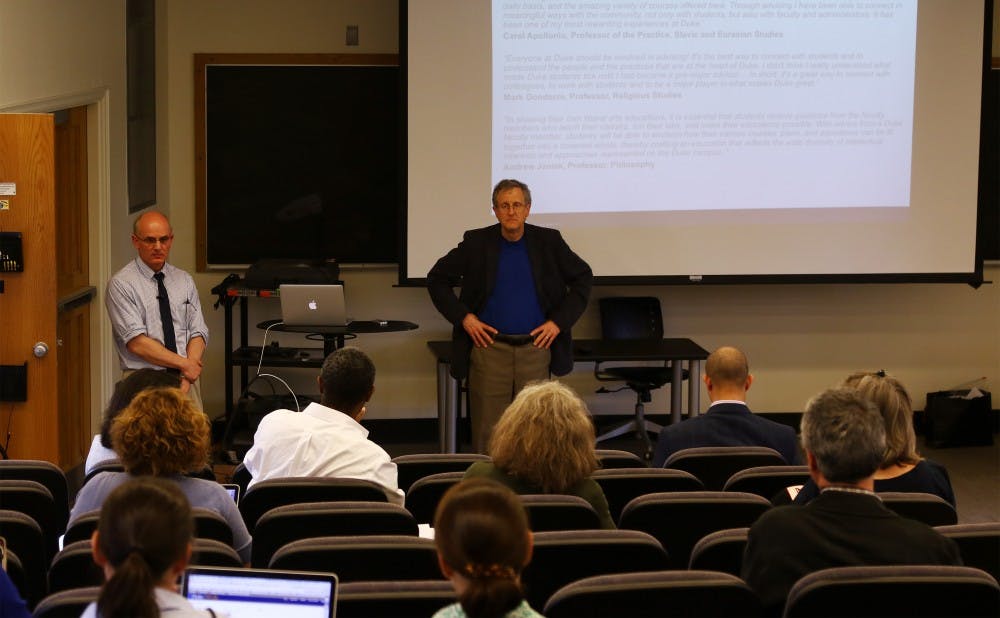The Arts and Sciences Council received an update from Steve Nowicki, dean and vice provost for undergraduate education, regarding proposed alterations to the undergraduate advising system during its meeting Thursday.
The proposed changes include allowing students to retain one advisor throughout all four years, if desired, and promoting smaller advising communities within residential houses. Nowicki noted that many changes to the advising system have been in development for several years, with some of them, such as the shift to assigning academic deans for all four years, taking effect this past Fall.
“This will be a work in progress,” Nowicki said. “The Trustees looked at data from things like the senior survey and said that advising doesn’t seem to be doing very well at Duke.”
Currently, Trinity students are assigned a pre-major advisor and an academic dean upon matriculating to Duke. They continue to meet with that advisor until they declare their major, typically in their fourth semester. Once they have declared, they are assigned a different faculty advisor in the department of their major, as well as a different academic dean.
Nowicki noted that one downside to this model is that students who form close connections with their pre-major advisor do not maintain those relationships as they transition into their major.
“The new dean assigned when there is a major might not have personal knowledge of that student’s circumstance,” he said.
In addition, Nowicki noted that students who choose to study abroad in the Fall of their junior year may wait months to establish a connection with their new major advisor.
Under the proposed model, students decide whether to retain their advisor after declaring a major. This would prevent advising relationships from being seen as temporary or transactional, Nowicki said.
Another proposed change is that all of a faculty advisor’s first year advisees live in the same dormitory starting in Fall 2016.
David Rabiner, associate dean of Trinity, said the University’s goal is to develop advising communities that contain fewer students than in years past. This would allow for more individual attention from advisors and would also limit their advising time commitment.
Rabiner added that the proposed model aims to promote multi-dimensional advising by helping students focus on what they want to get out of their Duke experience.
Rabiner explained that the University has gone from having 110 pre-major advisors a few years ago to close to 280 next year—offering each advisor a smaller caseload.
The changes to the advising system may occur whether or not proposed curriculum changes are approved, Nowicki said.
J. Lorand Matory, Lawrence Richardson professor of cultural anthropology and professor of African and African American studies, asked how the University can promote advising that encourages students to move away from a credentialist mindset.
“The ethnography of our students suggests that when they get home to their dormitories, they’re not talking about classes, they’re not talking about grand intellectual visions," he said. “They’re talking about checking off boxes, how to get credentials as efficiently as possible.”
Rabiner noted that reducing the complexity of the curriculum would allow students to focus their advising conversations on deeper topics than simply how to best meet requirements.
“The more it’s hard to understand the curriculum, the more the advisor is put into the position of being the person that a student goes to because she needs to say, 'How do I check this off?'” Rabiner said.
In other business:
The Council received an update on the ongoing Trinity curriculum review from Gary Bennett, Bishop-MacDermott family professor of psychology and neuroscience and member of the curriculum review committee.
The committee is now in the process of collecting feedback from students and faculty on proposed changes to the curriculum.
Get The Chronicle straight to your inbox
Signup for our weekly newsletter. Cancel at any time.

